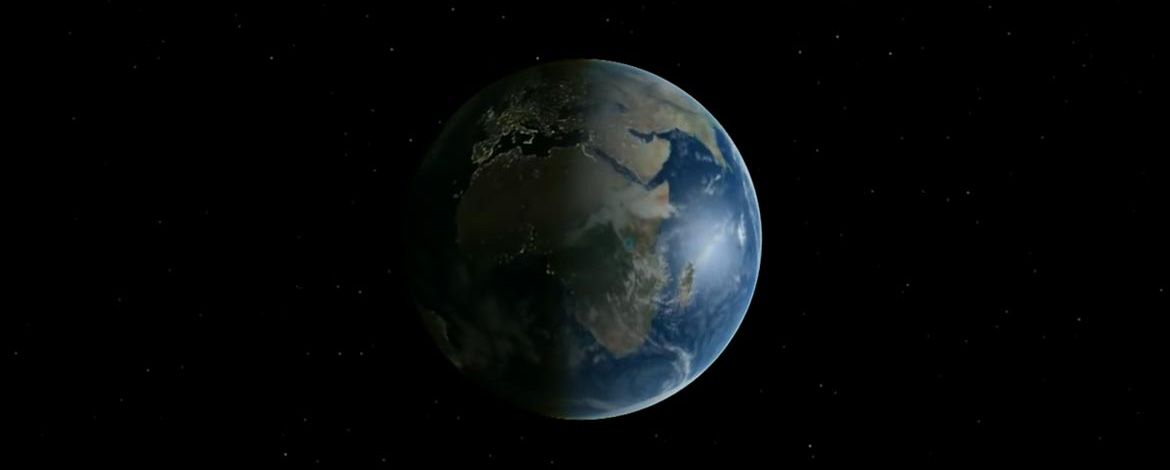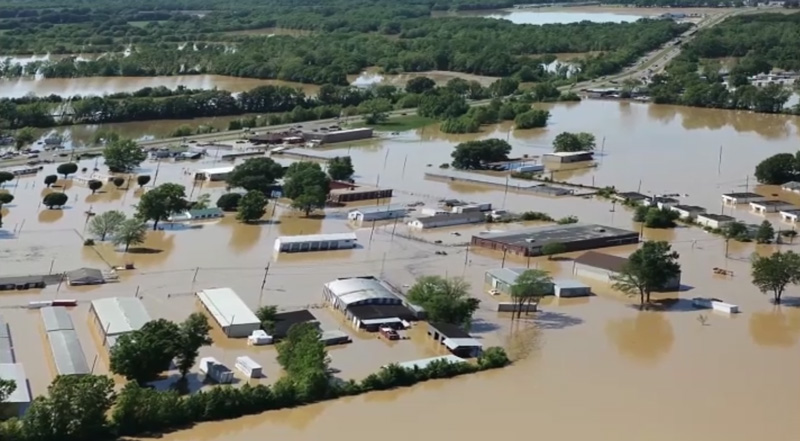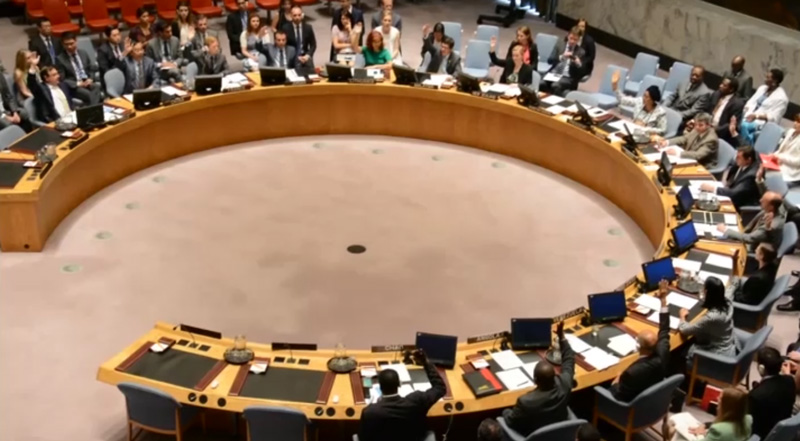Planetary Wellbeing, un repte de planeta i un projecte central de la UPF
1. In depth
Planetary Wellbeing, a global challenge and a core UPF project
The University is launching a university-wide inter- and transdisciplinary project in the field of Planetary Wellbeing with the aim of equipping the institution with a vision committed to tackling the major challenges facing global society in the 21st century.

In late 2017, UPF Rector Jaume Casals announced the university’s intention to promote a multi-, inter- and transdisciplinary initiative in the field of Planetary Wellbeing. The aim would be to equip the institution with a vision committed to tackling the major challenges facing global society in the 21st century and to generate transformative energies to reshape both the university and its urban environment, i.e. the city of Barcelona.
The project is being coordinated by the lecturers Josep Lluís Martí, vice-rector in charge of innovation projects, and Josep Maria Antó, scientific director of ISGlobal. The primary goal is to increase knowledge and understanding of the set of complex, interrelated and systemic issues affecting the wellbeing of humans, animals and the planet itself, as a global ecosystem, and to identify innovative and integrated interdisciplinary solutions for them.
The project's primay goal is to increase knowledge and understanding of the set of complex, interrelated and systemic problems affecting the wellbeing of humans, animals and the planet itself, as a global ecosystem, and to identify innovative and integrated interdisciplinary solutions for them
The project is based on four simple, but powerful ideas. First, human health and wellbeing, animal welfare and civilisation itself depend on the planet’s natural systems. Second, the challenges and threats we face today are complex, changing and increasingly unpredictable, and the need to address them is more urgent than ever. Third, we need to make a qualitative leap in our knowledge and understanding of the issues, as well as in global governance and collective decision-making, in order to find and implement effective solutions. This leap can only be made by embracing a new approach that enables us to work integratively, drawing on the various disciplines of our current knowledge. And, fourth, these solutions exist: finding them is not an impossible challenge.

UPF has made a firm commitment to contribute to this planetary goal by blurring the boundaries between disciplines, departments and units. The initiative aims to create internal spaces for scientific and teaching cooperation between the university’s various fields of work, to encourage new research aimed at advancing some of the main lines of Planetary Wellbeing, and to provide new students and researchers with more inter- and transdisciplinary training. We need to ensure that both our undergraduate and postgraduate students and the new generations of researchers have access to a painstaking and plural body of knowledge about the major planetary challenges and the possible responses and solutions.
To achieve this goal, the Planetary Wellbeing project has already begun to work with a lead team of researchers from the university’s eight departments, whose work is related to the concept of Planetary Wellbeing and who have been tasked with developing the initiative.
Planetary and human health: two indissociable concepts
“The choice of the Planetary Wellbeing concept arose from the recent international planetary health proposal, with the aim of encompassing, from a much broader perspective, the various disciplines and working areas at UPF’, explained Martí. The concept of planetary health is a relatively recent one. It was first proposed in a report by a panel of experts published in The Lancet in 2015 on the main challenges to safeguard human health in the Anthropocene epoch. According to the report, in an unprecedented context of accelerating climate change and other global transformations, humanity could advance successfully through the 21st century by addressing current unacceptable inequalities, for instance, with regard to health or wealth distribution. This powerful idea has already given rise to various high-level global research initiatives, such as the creation of the Planetary Health Alliance.
Planetary and human health are closely interrelated. Nevertheless, the progress made in the last century on societal wellbeing has come at the expense of planetary health, with an unprecedented rate of exploitation of natural resources. Furthermore, this use and overexploitation of resources has not always been beneficial to the wellbeing of the populations from which they have been expropriated. Consequently, it is also necessary to address the resulting inequalities in health and wealth. In this context, protecting planetary health is essential to safeguarding human health and vice versa.

According to Martí, ‘The Planetary Wellbeing project reflects the desire to take the concept of planetary health beyond human health itself. It does this in two ways: first, by establishing a direct link between human health and planetary balance; and, second, by situating human health in the broader context of the health and balance of non-human animals and the planet’s ecosystems.’
‘The chosen issue had to meet certain requirements. First, it had to be both trans- and interdisciplinary, to enable the integration of the contributions of all UPF’s knowledge areas and to incentivize cooperation. At the same time, it had to build on one of the university’s strengths, with the ability to grow and act as an engine to attract resources for the university as a whole’, Martí explained.
The challenges to Planetary Wellbeiing can only be adressed in an integrative way, combining our current knowledge of health, biology, economics, law, governance, technology and, obviously, cultura, art and humanities
Needless to say, the study of the challenges to Planetary Wellbeing can only be addressed in an integrated way, combining our current knowledge of health, biology, economics, law, governance, technology and, obviously, culture, art and the humanities.
Also taken into consideration was the fact that it would ‘awaken the interest of global players, such as large foundations, transnational social organizations, supra-state bodies and even governments, seeking to invest in the proposal. We need to learn to work collaboratively and globally’, he added.
Universities and global cooperation

The Planetary Wellbeing project is an initiative to equip Pompeu Fabra University with a clear, differentiated, global identity of leadership.
‘The world’s universities vie with each other in a healthy competition to attract the top talent and engage in more and better teaching and research. We must find differentiating factors able to endow our singular and innovative project with content, whilst at the same time enabling it to act as an engine to secure resources and galvanize the university as a whole’, Martí said.
The university of the 21st century has to find its palce in a context of global cooperation for the creation and transfer of knowledge
“Nevertheless,’ the vice-rector added, ‘competition is no longer the main driver of knowledge in the world. The university of the 21st century has to find its place in a context of global cooperation for the creation and transfer of knowledge. Our challenge is to make UPF a hub for leadership in a worldwide network of interdisciplinary higher education and research centres and institutions that have to work not only with each other, but also with social organizations and government institutions, in order to understand and address the planet’s challenges.’

The Planetary Wellbeing project was created at the initiative of UPF Rector Casals as a global project for the university, and it received strong early support and enthusiasm from a group of UPF researchers. It is absolutely open to the involvement of all members of the university community (students, teaching and research staff, and administrative and service staff).
An initial meeting was held on 11 May, where more than 40 researchers from the university’s eight departments had the opportunity to share their research related to the objective of Planetary Wellbeing. For the first time, the university has opened a common and stable physical (not just virtual) space to share research and begin to forge the bonds of a truly interdisciplinary collaboration. This autumn, it will hold another meeting open to everyone. At present, project participants are developing the first strategic lines and actions for both teaching and research, which will begin to be implemented over the 2018-2019 academic year.
Project Management
- Jaume Casals, rector of Pompeu Fabra University
- Josep Lluís Martí, vice-rector in charge of innovation projects
- Josep Maria Antó, scientific director of ISGlobal
Institutional collaborators
- Mònica Figueras, vice-rector in charge of social commitment and equality projects
- Cristina Gelpí, vice-rector in charge of teaching projects
- Pablo Pareja, vice-rector in charge of student reception, participation and mentoring projects
- Enric Vallduví, vice-rector in charge of projects in the field of research
- Isabel Valverde, vice-rector in charge of internationalization projects
- Manel Jiménez, director of the CLIK (Center for Learning Innovation and Knowledge)
- Pilar Medina, coordinator of Special Academic Activities
- Àngels Ingla, head of the Rector’s Office
Research collaborators
- Humberto Llavador, Department of Economics and Business
- Ester Oliveras, Department of Economics and Business
- Jacint Jordana, Department of Political and Social Sciences
- Ricard Solé, Department of Experimental and Health Sciences
- Angel Rodrigo, Department of Law
- Paula Casal, Department of Law
- Carla Lancelotti, Department of Humanities
- Cristina O’Callahan, ISGlobal
